Heather Sander
Accepting PhD students for Fall 2025
Office hours
- Tuesdays: 2:00 p.m. - 4:00 p.m.
- Fridays: 2:00 p.m. - 3:00 p.m.
- Or by appointment
Research interests
- Urban wildlife ecology and conservation
- Urban social-ecological systems
- Urban human-nature interaction
- Nature based solutions
My research combines social and natural science theory and methods to assess links between urban vegetation and built environments, biodiversity, and human well-being to addresses this challenge and build urban social-ecological theory to support the design of healthy, biodiverse cities. I focus on two key urban ecology subfields, urban wildlife ecology and urban human-nature interaction.

|

|
|
|
|
Urban wildlife ecology
Cities are among Earth’s most intensely human-dominated environments, but we now know that they can support surprisingly diverse wildlife communities, leading to recognition of the importance of cities as sites of conservation. The growing urban wildlife literature consists mainly of single-city studies of large metropolitan areas and has only recently started to compare findings among cities in different contexts to build comprehensive theory. My research answers key questions regarding relationships between urban vegetation, wildlife communities, and human populations to help build this theory and connects urban ecological theory to planning and management. I conduct my research at two scales, (1) local scales in understudied small cities in agricultural contexts and (2) regional-to-global scales via multicity studies, to fill key gaps in urban wildlife ecology theory in agricultural regions and broadly. My local-scale research focuses on my study area, the Iowa City and Cedar Rapids metropolitan areas of eastern Iowa. This research connects to urban planning and conservation via engagement activities with communities and collaborations with practitioners. More broadly, my research examines how relationships between urban wildlife, vegetation, and people vary among cities. I conduct this work as part of the Urban Wildlife Information Network (UWIN) a network of researchers in more than 55 cities who use the same monitoring methods to build large, multiyear datasets to support multicity analyses that surpass single-city studies in advancing theory. This research advances regional-to-global scale theory, identifying differences in wildlife community diversity, composition, and interactions across urbanization and income gradients and with social processes such as gentrification.
Urban nature and human health and well-being: Urban ecosystems are often structured in ways that separate urbanites from nature and expose them to pollutants, noise, altered disease regimes, and urban heat, elevating stress and degrading mental and physical health. Urban vegetation and greenspace can enhance well-being and health, for example, by mitigating urban heat and air pollution, reducing stress, or promoting physical activity, but may also have negative effects (e.g., producing allergens; creating environments that foster crime and disease transmission). Urban design increasingly seeks to utilize green space and vegetation to address social challenges and support human health and well-being. Gaps in our understanding of how urban green spaces and ecosystems link to these benefits, and the potential for unintended outcomes, however, prevent us from effectively designing greening interventions to equitably benefit urban residents. My research draws from my interdisciplinary background and experience in multidisciplinary collaborations to fill these gaps. This research uses social and ecological modelling and data from a variety of sources to assess relationships between urban ecosystems and health and well-being and how these relationships vary with social and environmental context over local-to-national extents. This research has contributed to planning and management in my study area and to theory regarding how urban ecosystems interact with human population attributes to determine the environmental benefits or harms experienced by urbanites.
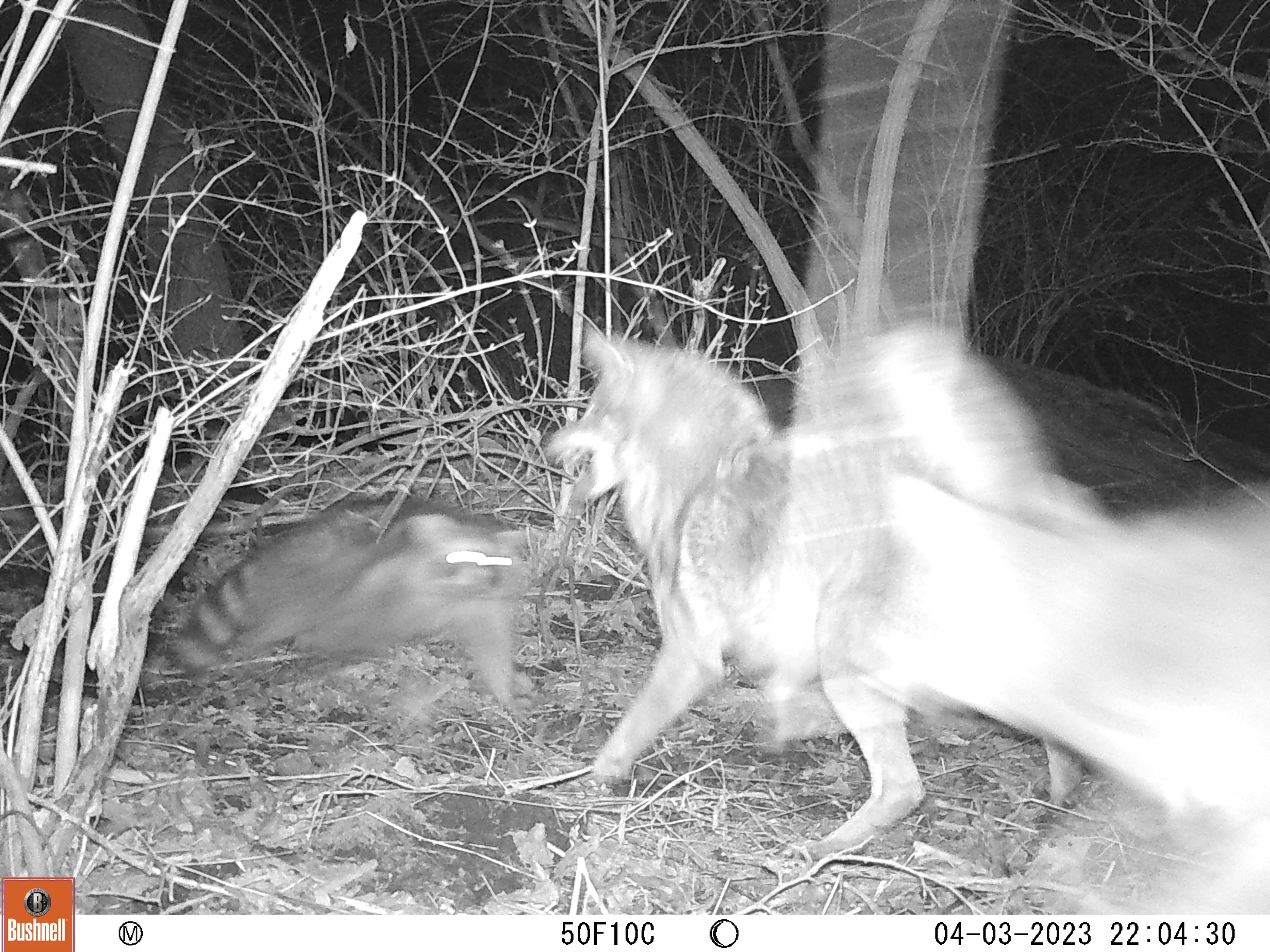
|
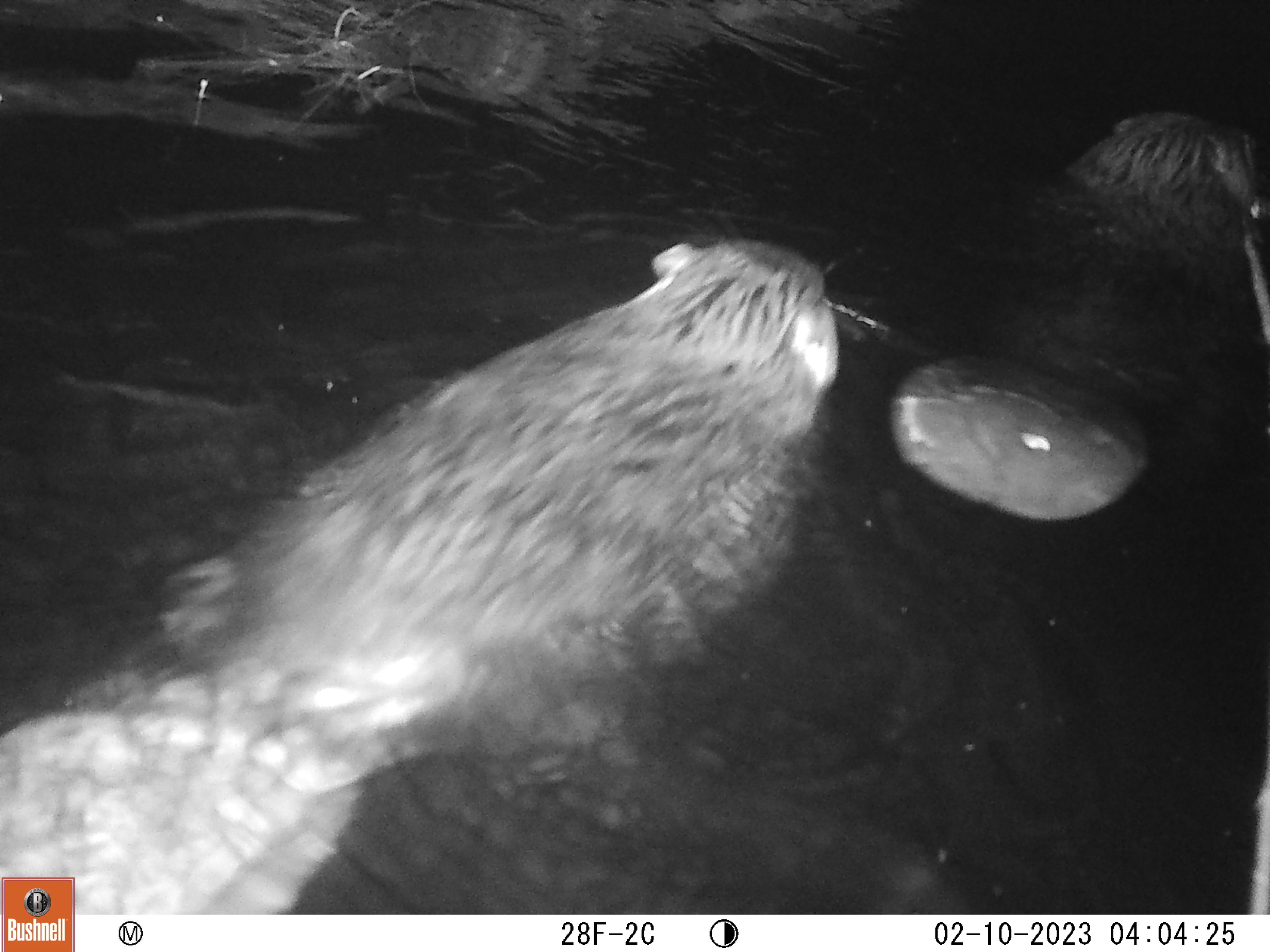
|
|
|
|
Courses
- GEOG:1070 Contemporary Environmental Issues
- GEOG:2950 Environmental Conservation
- BIOL/GEOG:2374: Biogeography
- GEOG:3350 Urban Ecology
- GEOG:3310 Landscape Ecology
- GEOG:3340 Ecosystem Services: Human Dependence on Natural Systems
- GEOG:4600 Biogeography, Ecology, and Conservation of Mammals
- GEOG:4520 GIS for Environmental Studies: Applications
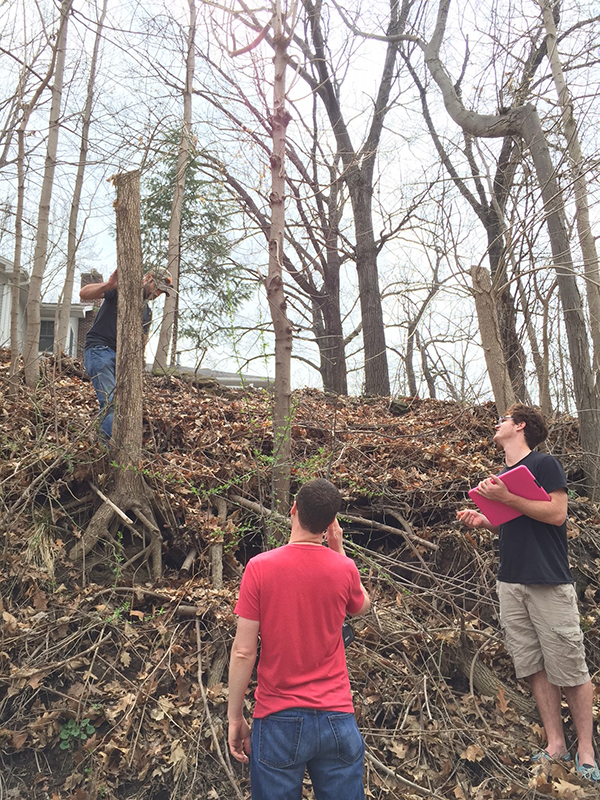
Prospective graduate students
I am accepting PhD students only for the fall of 2025. Students with research interests in urban wildlife ecology, particularly of mammals, and urban human-wildlife interaction who have previous field experience with urban wildlife (e.g., camera trapping, live trapping) and ecological modelling (e.g., occupancy modelling) should email me to identify their fit for my current openings.
Graduate advisees
- Akinwale Oladimeji (PhD, in progress)
- Caleb Sandoval (PhD, in progress)
- Matthew Little (PhD, in progress)
- Zachery Love (MA, 2024)
- Rachel Larson (PhD, 2024)
- Nick Alex (MA, 2022)
- Taylor Billings (MA, 2022)
- Brandon MacDougall (PhD, 2021)
- Brianna Zumhof (MA, 2019)
- Cody Hodson (PhD, 2019)
- Chang Zhao (PhD, 2018)
- Jason McCurdy (MA, 2016)
- Amirhossein Tayyebi (MA, 2015)
- Jamie Sanchagrin (MA, 2015)
- Hide Hiruma (MA, 2013)
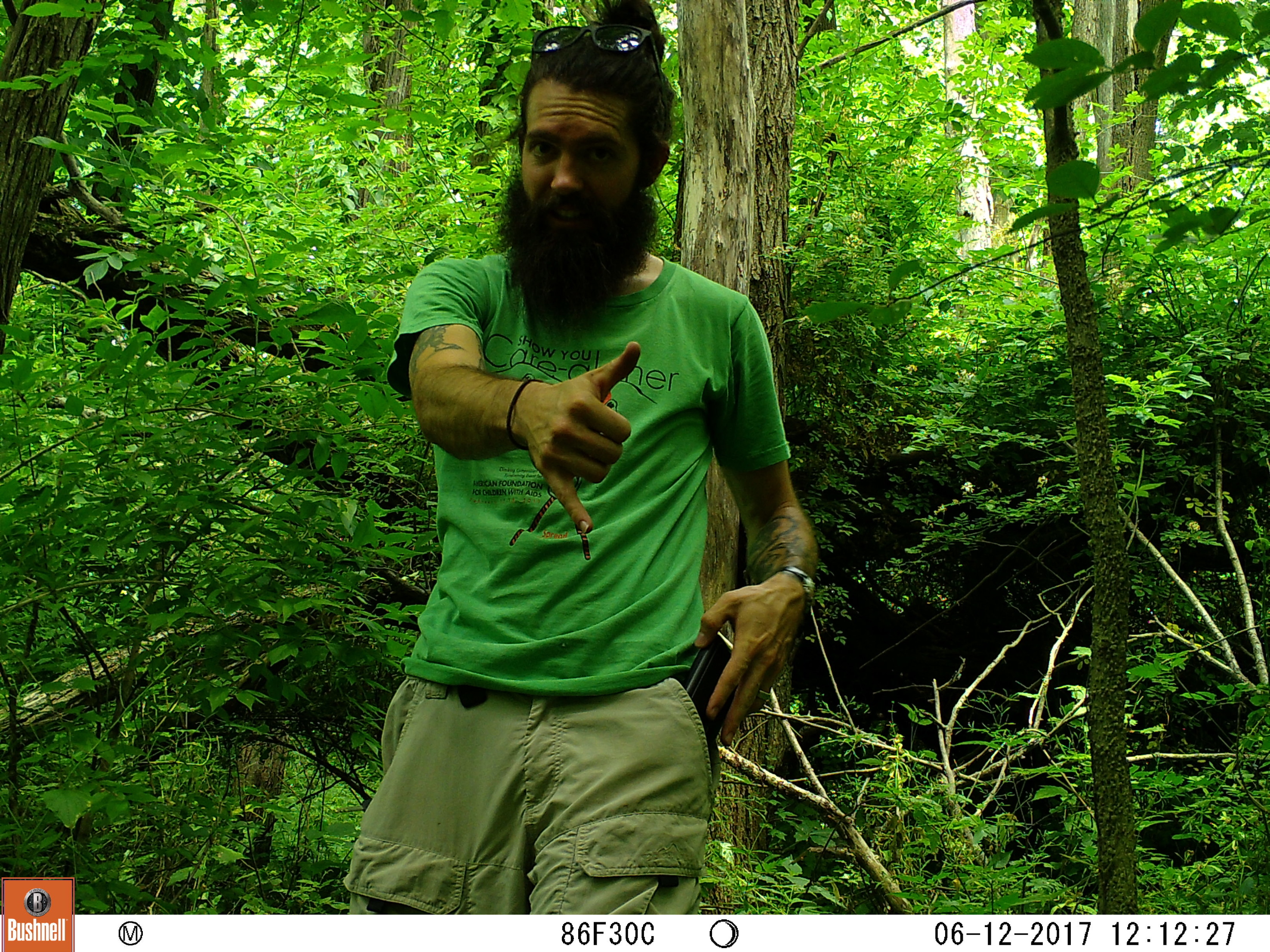
Grants and funding
Pending
- Oct 2025– Sept 2028 REU Site: Engaging Undergraduates in Interdisciplinary Evolutionary Science Research Experiences for Undergraduates, National Science Foundation. Amount Requested: $464,448. Investigator/s John L. Logsdon (PI), Andrew Kitchen (co-PI), Mark Blumberg (mentor), Christopher Brochu (mentor), Josep M. Comeron (mentor), Daniel Eberl (mentor), Albert Erives (mentor), Jan Fassler (mentor), Anthony Fischer (mentor), Andrew Forbes (mentor), Bin He (mentor), Douglas Houston (mentor), Ana Llopart (mentor), Maurine Neiman (mentor), Heather A Sander (mentor), Christopher Stipp (mentor), Mary Wilson (mentor).
- Sept 2025–Aug 2030 SRS RN: Co-Designing Sustainable Futures: Finding Resilient Solutions for Urban-Rural Systems in the Mississippi River Basin to Foster SETS Transformations Sustainable Regional Systems Research Networks, National Science Foundation. Amount requested: $14,999,999 Investigator/s Ulrike Passe (PI), Stephen Diko (Co-Principal), Kimberly Cash (Co-Principal), Kristen Nelson (Co-Principal), Charles Nilon (Co-Principal), Heather Sander (Co-Principal), Alba Agerich (Senior Personnel), Debra Bartelli (Senior Personnel), Traci Birch (Senior Personnel), Natalja Cerkasova (Senior Personnel), Alicia Coleman (Senior Personnel), Jennifer Drinkwater (Senior Personnel), Kim Erndt-Pitcher (Senior Personnel), Thomas Fisher (Senior Personnel), Baskar Ganapthysubramanian (Senior Personnel), Philip Gassman (Senior Personnel), Jiwanth Ghimire (Senior Personnel), Asli Gocmen (Senior Personnel), William Gutowski (Senior Personnel), Benjamin Janke (Senior Personnel), Shunrong Jia (Senior Personnel), Bonnie Keeler (Senior Personnel), Andrew Kitsinger (Senior Personnel), Setfan Liess (Senior Personnel), Sara McMillan (Senior Personnel), Claudio Meier (Senior Personnel), Abu Mohammed Naser Titu (Senior Personnel),Erin Douglas (Senior Personnel), Thanos Papanicolaou (Senior Personnel), Katherine Richardson Bruna (Senior Personnel), Brian Ritter (Senior Personnel), Gaston Small (Senior Personnel), Nina Struss (Senior Personnel), Michael Sunde (Senior Personnel), Janette Thompson (Senior Personnel), Yao Wang (Senior Personnel), Sean Zeiger (Senior Personnel),Xukai Zhang (Senior Personnel)
|
|
|
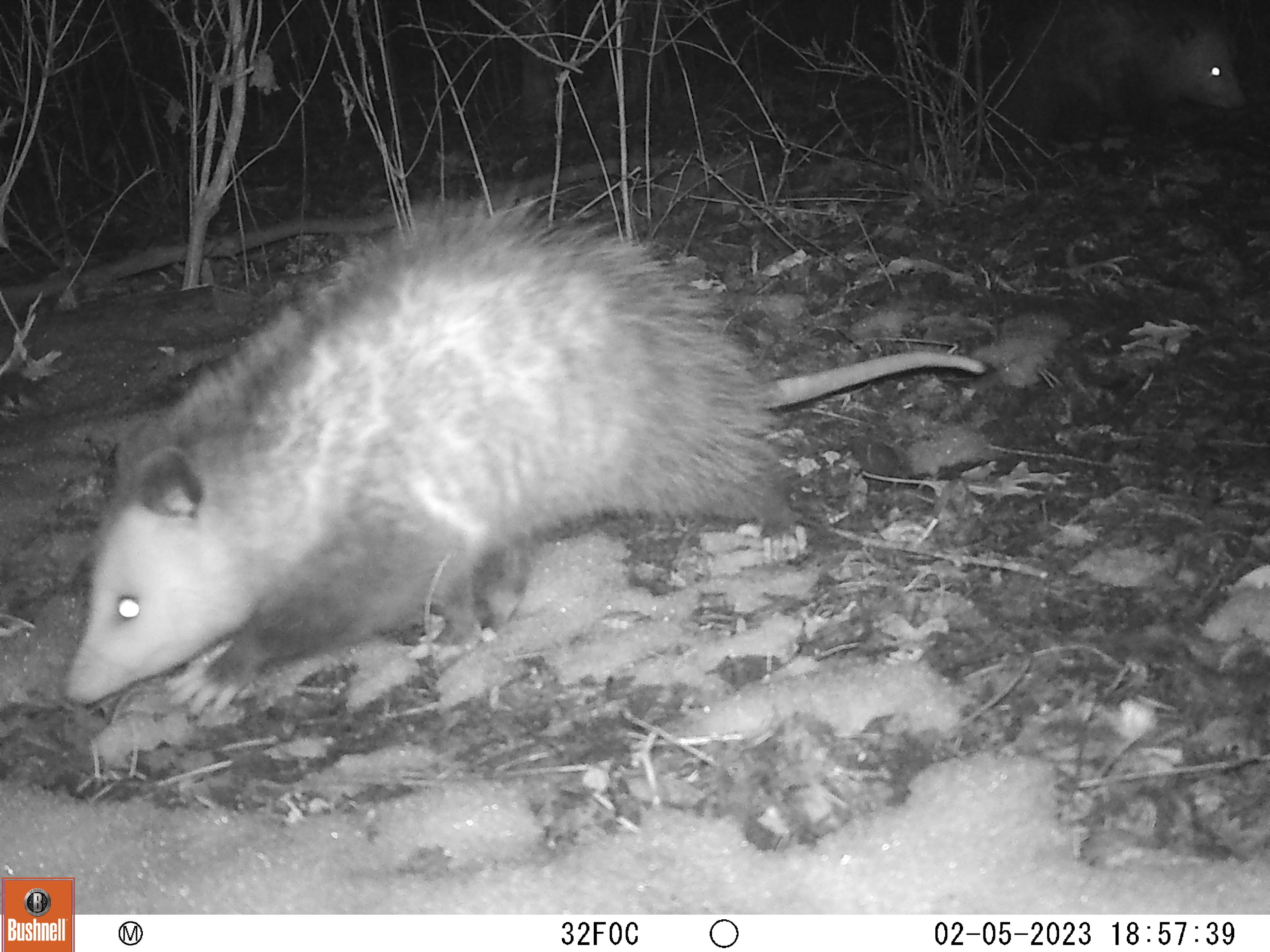
|
|
Selected funded
- Greening cities equitably to support academic success: Identifying how and why relationships between urban vegetation and academic performance vary with social and environmental context. Advancing Environmental Justice at UI funding program. Award amount: $39,000. Heather A Sander (Principal Investigator).
- Identifying urban owl distribution patterns in an agricultural region. Iowa Audubon. Award amount: $995. Investigator/s Heather A Sander (Principal Investigator), Nicholas Alex (Co-Principal).-
- Assessing changes in the songbird community associated with the August 2020 Iowa derecho event. Iowa Ornithologists Union. Award amount: $1,125. Investigator/s Heather A Sander (Principal Investigator), Brandon Caswell (Co-Principal).
- Sustainable air quality: tracking aeroallergens across urban and rural environments. Interdisciplinary Scalable Solutions for a Sustainable Future Program, University of Iowa Office of the Provost. Award Amount: $40,000. Investigator/s Elizabeth A. Stone (Principal Investigator), Thomas Peters (Co-Principal Investigator), Heather A Sander (Co-Principal Investigator), Scott Spak (Co-Principal Investigator).
- Schoolyard Nature: Connecting Eastern Iowa Children to Nature. Funded by Office of Outreach and Engagement. Award amount: ($9,838.00) PI: Heather A Sander.
- NSF REU Site: Interdisciplinary Geospatial Approaches to Watershed Science. National Science Foundation. Award amount: $269,000. May 2019-August 2021. Investigator/s Marc A Linderman (Principal Investigator), David A Bennett (Co-Principal), Heather A Sander (Senior Personnel), Elmer Arthur Bettis (Senior Personnel), Liz Hollingworth (Senior Personnel), Marian Muste (Senior Personnel), Elise Pizzi (Senior Personnel), Silvia Secchi (Senior Personnel), Eric Tate (Senior Personnel).
- Graduate College Challenge Grant. 2019-2021. "Interdisciplinary expansion of a successful community-focused science education program". Co-PI with Maurine Neiman, Andrew Forbes, Drew Kitchen, and Marc Linderman. $119,590.
- Center for Global and Regional Environmental Research (CGRER) Seed Grant. 2019-2020. Co-PI with Stephen Hendrix, Growing the urban forest: Uncovering relationships that shape urban forests and understories in agricultural cities. $29,997.
- University of Iowa, Outreach & Engagement. 2018-2019. Understanding perceptions of urban biodiversity and its benefits in eastern Iowa cities. Award amount: ($9,495.00). Investigator/s Heather A Sander (Principal Investigator), Brianna Zumhof (Co-Investigator)
- National Science Foundation, WSC-Category 1. 2014-2019. Senior Personnel for Decision Processes, Climate Change, and Water Resources in the Agricultural Midwest. $599,383. "Collaborative Research" with Adam Ward (PI), Co-PIs Kajsa Dalrymple and Scott Spak, and Senior Personnel Sara Mitchell, Eric Tate, Ananya Sen Gupta, and Aaron Strong.
Selected publications
- Devarajan, K., Fidino, M., Farris, Z. J., Global Animal Diel Activity Consortium (~220 members including Sander, H. A.), Brian D. Gerber. In review following revision. When the wild things are: Defining mammalian diel activity and plasticity. Science Advances.
- Larson, R. N. G, Sander, H. A. Accepted – in press. Variation in species-specific responses to habitat fragmentation and land cover structure urban small mammal communities. Journal of Mammalogy.
- Larson, R. N. G, Sander, H. A., Fidino, M., Angstmann, J.L., Barczak, L., Moore, K., Davidge, A., Drake, D., Hartley, L., Hayes Hursch, S., Moore, K., Robey, A., Salsbury, C., Sadkin, E., Sanchez, P.R., Snyder, T., Stankowich, T., Tombs, K., Will, D., Williamson, J., Zellmer, A.J., Magle, S. Accepted – in press. Patterns in tree squirrel co-occurrence vary with responses to local land cover in US cities. Urban Ecosystems.
- Fidino, M., Sander, H. A., Lewis, J. S., Lehrer, E. W., Rivera, K., Murray, M. H., Adams, H. C., Kase, A., Flores, A., Stankowich, T., Schell, C., Salsbury, C. M., Rohnke, A. T., Jordan, M.J., Green, A. M., Gramza, A. R., Zellmer, A. J., Williamson, J., Surasinghe, T. D., Storm, H., Sparks, K. L., Ryan, T. J., Remine, K. R., Pendergast, M. E, Mullen, K., Minier, D. E., Middaugh, C. R., Mertl, A. L., McClung, M. R., Long, R., A., Larson, R. N. G, Kohl, M. T., Harris, L. R., Hall, C. T., Haight, J. D., Drake, D., Davidge, A. M., Cheek, A. O., Bloch, C. P., Biro, E. G., Anthonysamy, W. J. B., Angstmann, J. L., Allen, M. L., Adalsteinsson, S. A., Short, A. G., LaMontagne, J. M., Gelmi-Candusso, T. A., Magle, S. B. 2024. Gentrification drives patterns of alpha and beta diversity in cities. Proceedings of the National Academy of Sciences 121(17):e2318596121.
- Haight, J.D., Hall, S.J., Fidino, M., Adalsteinsson, S.A., Ahlers, A.A., Angstmann, J., Anthonysamy, W.J., Biro, E., Collins, M.K., Dugelby, B., Gallo, T., Green, A.M, Hartley, L., Jordan, M. J., Kay, C. A. M., Lehrer, E. W., Long, R. A., MacDougall, B. G, Magle, S. B., Minier, D. E., Mowry, C., Murray, M., Nininger, K., Pendergast, M. E., Remine, K. R., Ryan, T., Salsbury, C., Sander, H. A., Schell, C. J., Sekercioglu, C. H., Shier, C. J., Simon, K. C., St. Clair, C. C., Stankowich, T., Stevenson, C. J., Wayne, L., Will, D., Williamson, J., Wilson, L., Zellmer, A. J., Lewis, J. S. 2023. Urbanization, climate and species traits shape mammal communities from local to continental scales. Nature Ecology & Evolution 7:1654-1666.
- Sander, H. A., Hodson, C. B. G, MacDougall, B. M. G 2022. Integrating human and species habitat preferences in conservation in heterogeneous urban settings. Environmental Conservation 49(4):234-243.
- Sander, H. A. 2022. Closing four remaining gaps in deploying urban vegetation to enable sustainable cities. OneEarth 5:482-484.
- Larson, R. N. G, Sander, H. A. 2022. Seasonal activity patterns of sympatric eastern gray squirrels (Sciurus carolinensis) and fox squirrels (S. niger) in a Midwestern metropolitan area. Urban Ecosystems 25:1527-1539.
- Kay, C., Rohnke, A., Sander, H., Stankowich, T., Fidino, M., Murray, M., Lewis, J., Taves, I., Lehrer, E., Zellmer, A., Schell, C., Magle, S. 2022. Barriers to building wildlife-inclusive cities: Insights from a joint summit of urban ecologists, urban planners, and landscape designers. People and Nature 4:62-70.
- MacDougall, B., M. G, Sander, H. A. 2022. Mesopredator occupancy patterns in a small city in an intensively agricultural region. Urban Ecosystems. 25:1231-1245.
- Gallo, T., Fidino, M., Gerber, B., Ahlers, A., Angstman, J., Amaya, M., Concilio, A.L., Drake, D., Lehrer, E.W., Murray, M.H., Ryan, T.J., St. Clair, C.C., Salsbury, C.M., Sander, H.A., Stankowich, T. Belaire, J.A., Magle, S.B. 2022. Mammals adjust diel activity across gradients of urbanization. eLife:11:e74756.
- Alderson, J. U, Sander, H. A. 2022. Combining historical accounts with contemporary bird survey data identifies changes in an avian community over a period of anthropogenic change. Ibis 164(2):411-422.
- Magle, S., Fidino, M., Sander, H. A., Rohnke, Adam, Larson, Kelli, Gallow, T., Kay, C., Lehrer, E., Murray, M., Adalsteinsson, S., Ahlers, A., Anthonysamy, W., Gramza, A., Green, A., Jordan, M., Lewis, J., Long, R., MacDougall, B. G, Pendergast, M., Remine, K., Simon, K., St. Clair, C., Shier, C., Stankowich, T., Stevenson, C., Zelmer, A., Schell, C. 2021. Wealth and urbanization shape mammalian communities across North America. Global Change Biology 27(21):5446-5459.
- Hodson, C. B. G, Sander, H. A. 2021. Urban vegetation, high school graduation, and social and environmental context. Landscape and Urban Planning 214:104161.
- Sander, H. A., McCurdy, J. D. G 2021. Urban vegetation and songbird nesting guilds: Relationships and implications for conservation. Urban Forestry and Urban Greening 64:127308.
- Fidino, M., Gallo, T., Lehrer, E.W., Murray, M.H., Kay, C., Sander, H.A., MacDougall, B. G, Salsbury, C.M., Ryan, T.J., Angstmann, J.L., Belaire, J.A., 2021. Landscape‐scale differences among cities alter common species’ responses to urbanization. Ecological Applications 31(2):e2253.
- Hodson, C. B. G, Sander, H. A. 2019. Relationships between vegetation in student environments and academic achievement across the continental U.S. Landscape and Urban Planning 189(September 2019):212-224.
- Magle, S. B., Fidino, M., Lehrer, E. W., Gallo, T., Mulligan, M. P., Ríos, M. J., Ahlers, A. A., Angstmann, J., Belaire, A., Dugelby, B., Gramza, A., Hartley, L., MacDougall, B. G, Ryan, T., Salsbury, C., Sander, H. A., Schell, C., Simon, K., Drake, D. 2019. Advancing urban wildlife research through a multi-city collaboration. Frontiers in Ecology and the Environment 17(4):232-239.
- Zhao, C. G, Sander, H. A., Hendrix, S. D. 2019. Wild bees and urban agriculture: Assessing pollination supply and demand across urban landscapes. Urban Ecosystems 22(3):455-470.
Presentations
Selected, recent lab group presentations
- Sander, H. A., Fidino, M., et al. 2024. Patterns in urban mammal communities are related to gentrification. Conference of URBIO-International Network: Urban Biodiversity and Design for Local Communities, Columbia, Missouri, United States.
- Sander, H. A., Fidino, M., et al. 2024. Gentrification drives patterns in mammal alpha and beta diversity in US cities. British Ecological Society Annual Meeting, Belfast, United Kingdom.
- Sander, H. A., Hodson, C. B. 2023. Relationships between urban vegetation and academic achievement vary with social and environmental context. Royal Geographical Society/Institute of British Geographers Annual International Conference, London, United Kingdom.
- Sander, H. A., MacDougall, B. M. 2022. Indicator communities for wildlife conservation in heterogeneous urban areas. Conference of URBIO-International Network: Urban Biodiversity and Design, Leipzig, Germany.
- Sander, H. A., McCurdy, J. D. 2022. Songbird nesting guild responses to urban vegetation and their implications for conservation. Ecological Society of America/Canadian Society for Ecology and Evolution Joint Meeting, Montréal, Quebec, Canada.
- Larson, R. N. Sander, H. A. 2022. Patterns of urban tree squirrel occupancy show strong city-level effects across their geographic range. 101st Annual Meeting of the American Society of Mammalogists, Tucson, AZ.
- Larson, R. N. Sander, H. A. 2021. Varying responses to land cover, not temporal avoidance, lead to coexistence of sympatric tree squirrel species in a Midwestern US city. International Urban Wildlife Conference. Virtual.
- Larson, R. N. Sander, H. A. 2020. Varying responses to land cover, not temporal avoidance, lead to coexistence of sympatric tree squirrel species in a Midwestern US city. British Ecological Society Annual Meeting, Festival of Ecology. Virtual.
- Sander, H. A., Hodson, C. B. 2020. Urban vegetation, high school graduation, and social and environmental context. British Ecological Society Festival of Ecology. Virtual.
- Sander, H. A. 2019. Assessing the habitat preferences of urban humans and birds to support urban landscape management. British Ecological Society Annual Meeting, Belfast, United Kingdom.
- Sander, H. A. 2019. Iowa City UWIN Site Research and Outreach Activities. Urban Wildlife Information Network Summit, Lincoln Park Zoo, Chicago, Illinois.
- Gallo, T., Sander, H. A. 2019. Knowledge Cafe: Identifying and addressing challenges and barriers to cross-disciplinary collaboration between wildlife scientists and urban planners and designers. Urban Wildlife Information Network Summit, Lincoln Park Zoo, Chicago, Illinois.
- Sander, H. A., MacDougall, B. M. 2019. Indicator communities for songbird conservation in heterogeneous urban landscapes. International Urban Wildlife Conference, Portland, Oregon..
- Urban wildlife ecology and conservation
- Urban social-ecological systems
- Urban human-nature interaction
- Urban nature-based solutions
